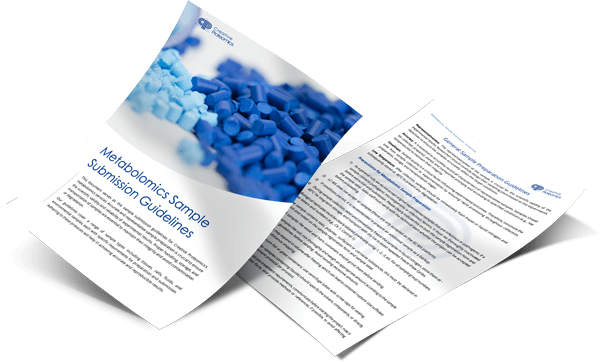Gut Microbiota And Metabolome
There are a large number of microorganisms in the human gut, and these microbial communities are called the gut microbiota, which contains 500 to 1,000 different species of bacteria with a total number of genes more than 100 times greater than that of humans. The total weight of human intestinal bacteria can be 1-1.5 kg. The gut microbiota plays a crucial role in human health by participating in various physiological processes such as digestion, absorption, metabolism, and the immune system, thus influencing human life activities. Furthermore, the gut microbiota is closely linked to various diseases such as obesity, diabetes, tumors, immune system, and neurological diseases.
In recent years, the study of gut microbiota has attracted a significant amount of interest from researchers worldwide, and has become one of the current scientific research hotspots as metabolomics. Currently, the main tools for gut microbiota research are high-throughput 16s rRNA sequencing, metabolomics and proteomics, and systems biology analysis has provided a great impetus to the rapid development of gut microbiota research and analysis.
Creative Proteomics provides leading integrated solutions for gut microbiota research based on metabolomics.
Analysis Of Host Metabolite Detection In Gut Microbiota
Un-targeted metabolomics is the unbiased detection of all endogenous small-molecule metabolites from an omics perspective. It uses bioinformatics to study the overall metabolic characteristics or changes in the endogenous metabolites of an organism after a disturbance (e.g., genetic alteration or environmental change), to discover the endogenous small-molecule metabolites (potential biomarkers) that cause such metabolic differences and to explore the metabolic mechanisms that give rise to such vital or pathological phenomena. Un-targeted metabolomics has become a research tool for functional genomics in the post-genomics era, an important means for large-scale screening of new biomarkers for early prediction, diagnosis and typing of diseases, and an important technical means for precision medicine one.
Accurate detection and analysis of gut microbiota and host metabolites, looking for differences and changes in the metabolome of intestinal microorganisms, can present the metabolic state of gut microbiota-host more directly, which is of great significance to then study the physiological or pathological mechanisms.
Metabolomic Analysis
Metabolomic assays are performed on host gut contents or stool samples to study the interaction between the gut flora and the host at the metabolic level. Different designs and needs in turn require the use of different metabolomics methods.
1 Short-Chain Fatty Acid Analysis
Short-chain fatty acids are produced in humans mainly from undigested and absorbed carbohydrates by colonic anaerobic bacteria enzymes, mainly including acetic acid, propionic acid and butyric acid. In the colon lumen, short-chain fatty acids not only serve as the main energy source for intestinal mucosal cells, but also reduce the production of pro-inflammatory factors and decrease the occurrence of colonic inflammation; more importantly, short-chain fatty acids inhibit the proliferation of tumor cells, and induce tumor cell differentiation and apoptosis, reducing the chance of tumor transformation.
2 Neurotransmitter Assay
The gut microbiota can produce neurotransmitter-like compounds including γ-aminobutyric acid, dopamine and 5-hydroxytryptamine, which signal to the body system, and these neurotransmitters can have different effects on human mental and behavioral activities.

3 Bile Acid Analysis
Both gut microbiota and bile acid metabolism play a key role in the development and progression of diseases such as obesity, diabetes, and nonalcoholic fatty liver disease. In recent years, the study of bile acid metabolism and gut microbiota has been gradually intensified, and intestinal bacteria have an important role in the biotransformation of bile acids, the synthesis of hepatic bile acids, and the reabsorption of intestinal bile acids.
4 Detection Of Oxidized Trimethylamine
Gut microbiota is closely associated with trimethylamine oxide (TMAO) metabolism. Foods containing choline or trimethylamine structures, such as phosphatidylcholine (PC), L-carnitine and certain marine fish, are metabolized to trimethylamine (TMAO) after digestion and absorption in the intestine and by gut microbiota.TMAO is further rapidly oxidized to TMAO by flavin monooxygenase 3 (FMO3) or other flavin monooxygenases (FMOx) secreted by the liver.
TMAO levels in the body are strongly associated with diabetes, cancer, cardiovascular disease, myocardial infarction, hypertension, hyperlipidemia and some renal diseases.
References
- Chang H.K. Microbiota or short-chain fatty acids: which regulatesdiabetes. Cellular & Molecular Immunology. 2017, 15:88-91.
- Williams B.B., Van Benschoten A.H., Fischbach M.A., et al. Discovery and characterization of gut microbiota decarboxylases that can produce the neurotransmitter vtryptamine. Cell Host & Microbe. 2014, 16:495-503.
- Gu Y., Wang X., Ning G., et al. Analyses of gut microbiota and plasma bile acids enable stratification of patients for antidiabetic treatment. Nature Communications. 2017, 8:1785.
- Zhu W., Gregory J.C., Hazen S.L., et al. Gut Microbial Metabolite TMAO Enhances Platelet Hyperreactivity and Thrombosis Risk. Cell. 2016, 165:111-124.
- Liu R., Hong J., Wang W., et al. Gut microbiome and serum metabolome alterations in obesity and after weight-loss intervention. Nature Medicine. 2017, 23:859-868.





